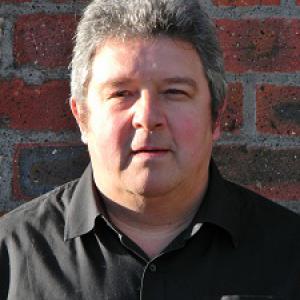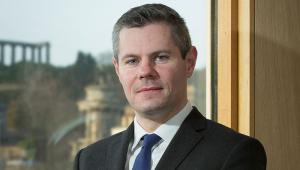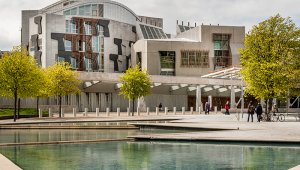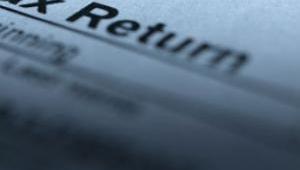It also tackles Conservative claims that fiscal devolution has left Scots the highest taxed citizens in the UK.
Unveiling his draft Budget at Holyrood, Mackay announced that he would raise the upper rates of income tax by 1p in the pound to 41p and 46p respectively, while freezing the basic rate at 20p, introducing a new “intermediate rate” of 21p for those earning above the Scottish median income of £24,000 and a new “starter rate” of 19p for the lowest-earning taxpayers.
As a result, he claimed, the 70% of Scottish employees earning at £33,000 or below would pay slightly less tax next year than this, while the 55% who earn less than £26,000 a year would pay less tax than their counterparts anywhere else in the UK.
It would, Mackay said, raise an extra £164m which, coupled with the ongoing effects of last year’s budget, would generate £366m more than would have been the case without the changes. Independent modelling, he said, showed that the increases to the top rates would be modest enough not to deter the investment the Scottish economy needed.
The plans prompted cheers from Mackay’s Scottish National Party colleagues and a warm welcome in principle from Patrick Harvie, co-leader of the Scottish Greens, who have argued hard for a more progressive income tax regime. The minority SNP government needs other parties’ votes to get its budget through the parliament.
But Harvie gave a more guarded welcome to Mackay’s confirmation that he would be lifting the 1% pay cap for public sector workers, by guaranteeing a 3% minimum rise for those earning £30,000 or less, and more modest rises for higher earners.
Mackay faced challenges on whether he had left the local authorities without additional means to meet the rise for their employees, after he announced a cash standstill for local authority revenue budgets and a real-terms rise in capital allocations.
This, Mackay said, would raise councils’ core funding in real terms by £94m, in contrast to the £300m cut some of them had projected. If they fully used their power to increase council tax by 3p in the pound, he said, it would raise another £77m, plus there were ring-fenced allocations for purposes like social housing.
But the Convention of Scottish Local Authorities disputed Mackay’s claim of a flat revenue budget settlement, arguing that it worked out as a real-terms cut of £153m, and that capital spending was also down in real terms.
Labour’s new Scottish Leader Richard Leonard, dismissing the budget as “Tory-lite” and insisted that funding for day-to-day council spending was being cut. The Liberal Democrats’ Willie Rennie called the local authority settlement “harsh” and the Scottish TUC warned Mackay to be sure he was funding inflation-plus pay rises in every part of the public sector.
Murdo Fraser, Scottish Conservative finance spokesman, was meanwhile scathing about the income tax package, which he said broke the promise in the last SNP manifesto not to increase the basic rate.
“Don’t be ambitious, don’t be hard-working, don’t be successful in the SNP’s Scotland because they will penalise you,” he said.
Don Peebles, head of devolved nations at CIPFA, said the budget was historic in the direct link it forged between income tax and public services.
“Although the method of raising income through taxation may be unpopular, it is welcome news that Scottish public services will receive more funding,” Peebles said.
“It is important that any additional income is invested efficiently and helps to power transformation, and not just towards realising short-term priorities.”












